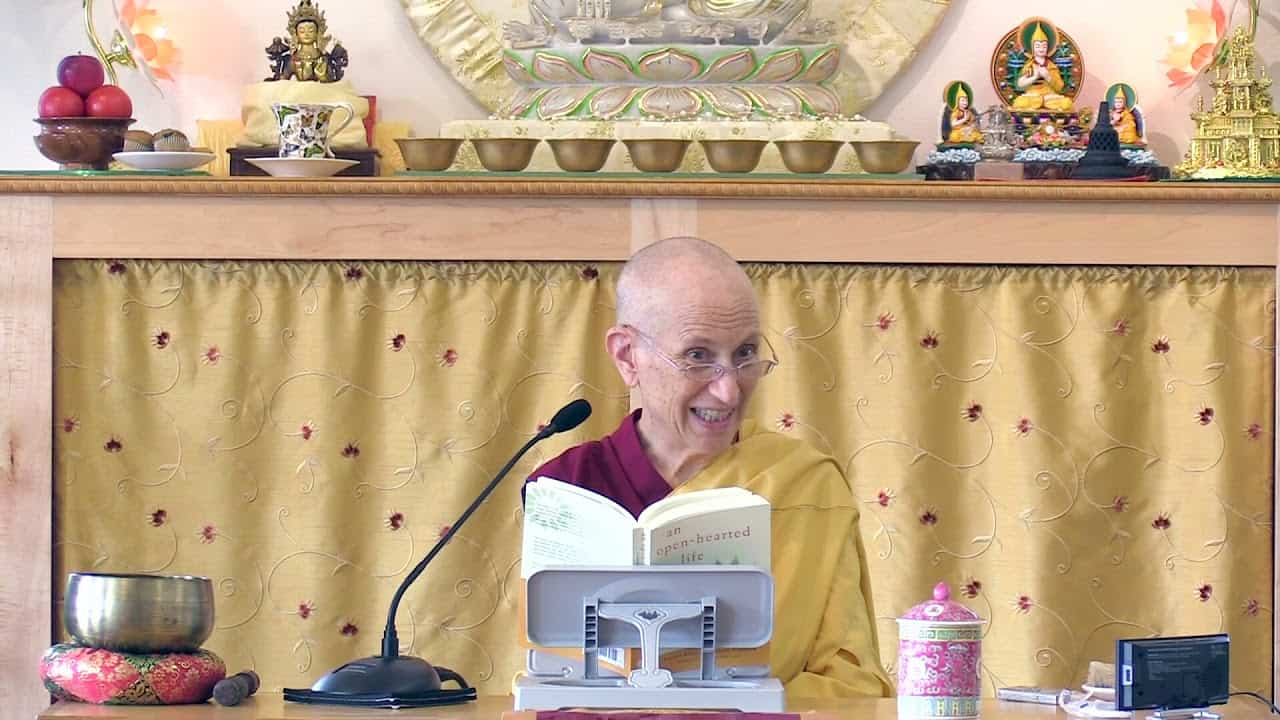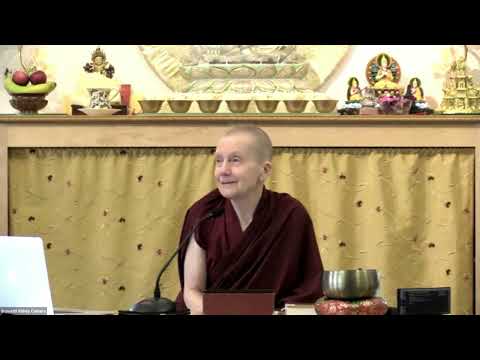When a dear one has a medical emergency

A European Dharma student who attended Venerable Chodron’s teachings in Europe several times requested help when his mother had a medical emergency.
Luca wrote:
Maybe you remember me. We exchanged some emails in the past. I am Luca, writing from Italy. Some years ago I did some translation from English into Italian for the website. I took refuge with you maybe 5-6 years ago in Europe, and I consider you my Dharma teacher. I am at an incredible low point in my life. My mother had a brain stroke, and I am totally overwhelmed. The last month has been the most difficult time of my life so far, and I am kind of desperate and feel hopeless. I’m not sure what I need, maybe some words of comfort.
Venerable Chodron:
It’s difficult when someone we love encounters severe health issues. You didn’t mention what in particular has been difficult for you in this situation so I will make some guesses.
First is concern for the well-being of the person we love. Will they recover? Will they die? Will they be infirm for the rest of their lives? These questions will be answered in time as you see how things develop. Right now, the important thing is to care for them and love them just as they are. Doing the Medicine Buddha practice and the Tara practice and reciting those two mantras can be very helpful to your mom and to you.
Another question regards finances: what kind of treatment will they require? How will we pay for it? Social workers, your insurance company (if you have one), and friends and relatives will give you information on this. You may have to look through your mother’s papers at home to understand her situation better.
Together with that is the question: Where will they live? Can they still live on their own? Or must they go into a nursing home in order to be properly cared for? The doctors and social workers will help you answer this.
Family issues all arise, especially if the children are trying to figure out together how to best care for their mother. Sometimes friction may arise as siblings have different ideas regarding this. Sometimes old habits of how the siblings relate to one another arise, for example, shyness, feeling restricted in what you can say, competition, control—all sorts of old issues that come to the surface when everyone is stressed. Regularly meditating on love and compassion will help ease this. Doing reflective and compassionate listening when others speak also helps.
And we also wonder: How will all of the above affect my life? It shocks us out of our easy-going complacency to realize that everything in the world is impermanent and changes all the time. Change also gives space for wonderful moments of intimate connection. For example, some years ago my dad, who had some dementia, was hospitalized. He asked me what he needed to take with him to go to London. Of course, he wasn’t planning to go to London—I understood his question as symbolic. He wanted to know what to take with him when he died. We had a wonderful conversation, both of us speaking symbolically, about this. I encouraged him to take his compassion and caring heart with him. That was the most important thing. He wondered if he needed to take a car to London. I said no, just leave his possessions here because his kind and generous heart would be sufficient. It was an amazing conversation in which a lot of love of exchanged.
Let your mind relax even though there are so many unknowns at the moment. Everything will fall into place. Love your mom; say whatever is in your heart to her; forgive her for her shortcomings, and have gratitude for all she gave you. Be kind to the doctors, hospital staff, other family members, and so on. I am confident that you will be able to handle this difficult situation well and bring your kind heart to it.
Let me know how I can help.
In the Dharma,
Ven. Chodron
Venerable Thubten Chodron
Venerable Chodron emphasizes the practical application of Buddha’s teachings in our daily lives and is especially skilled at explaining them in ways easily understood and practiced by Westerners. She is well known for her warm, humorous, and lucid teachings. She was ordained as a Buddhist nun in 1977 by Kyabje Ling Rinpoche in Dharamsala, India, and in 1986 she received bhikshuni (full) ordination in Taiwan. Read her full bio.


